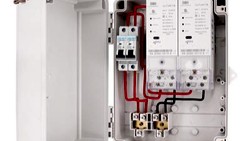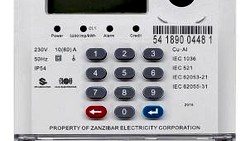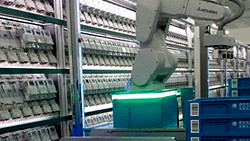The adoption of electronic smart meters has been steadily increasing around the world, but there are clear differences between developed and developing countries when it comes to this technology. In this blog, we will explore the advantages and challenges of smart meter adoption in both types of countries.
Developed Countries
In developed countries such as the United States, the United Kingdom, and many other European nations, the adoption of smart meters has been quite successful. These countries have well-established infrastructure and regulatory frameworks that make it easier for the utilities to replace traditional meters with electronic ones.
Smart meters have numerous advantages in developed countries, including:
- Improved energy efficiency
Electronic smart meters come with advanced features that help to reduce energy consumption. For instance, they can identify and alert customers of high energy usage, giving them a chance to make adjustments and save money. - Enhanced accuracy
The traditional meters are often prone to errors in reading, leading to incorrect billing. Smart meters, on the other hand, have better accuracy (class 1, vs. electro-mechanical meters with class 2), and customers can have full confidence in their bills. - Convenient payment options
Smart meters can come with payment options that allow customers to pay their bills online or through mobile devices, making it more convenient for them. - Reduced carbon footprint
Smart meters reduce carbon emissions by using more renewable energy and reducing energy waste.

Developing Countries
In developing countries such as India, Brazil, and many African nations, the adoption of electronic smart meters has been slower than in developed countries. These nations often face numerous challenges, including:
- Poor infrastructure
Many developing countries lack the infrastructure needed to replace traditional meters with electronic ones fully. For instance, the lack of reliable internet connectivity and electricity often hinders the installation and operation of electronic meters. - Low awareness
Many people in developing countries are not aware of the benefits of smart meters, making it challenging for utility companies to roll out the technology effectively. - Affordability
Electronic smart meters can be expensive to install and maintain, and many customers in developing countries cannot afford to pay for this technology.
Despite these challenges, the benefits of smart meter adoption in developing countries far outweigh the challenges. For instance, in India, widespread adoption of smart meters could lead to improved power reliability, reduced theft of electricity through a more accurate billing system, and improved access to renewable energy.
Takeaway
The adoption of electronic smart meters is essential, and both developed and developing countries have numerous benefits to gain from this technology. However, the challenges faced by developing countries call for more support to enable them to overcome the obstacles to faster and widespread adoption. Therefore, governments and utilities must work together to ensure that electronic smart meters are accessible to all, regardless of where they live.
We, as an energy services provider, welcome any inquiries regarding the smart meter rollout or implementation, and would be more than happy to assist you in any way possible. Please do not hesitate to contact us for further information or clarification.
Editor's note: This article was originally published in April 2023 and has been updated for comprehensiveness.





All comments are moderated before being published. Inappropriate or off-topic comments may not be approved.